"I Wish My Mother Could Have More Children"
Rabbi Itai Cohen, who prayed for siblings at a young age, now leads the 'Dorot' Institute, helping childless couples with halachic guidance, medical advice, emotional support, and financial assistance.
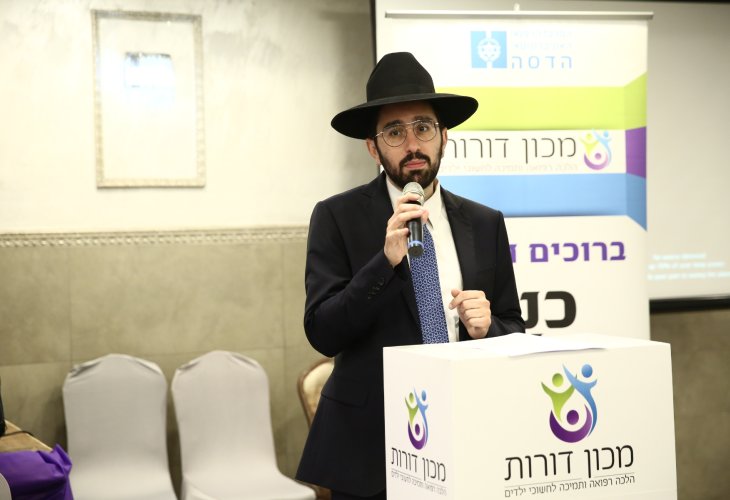 Rabbi Itai Cohen
Rabbi Itai Cohen"During the first wave of COVID-19, we had a couple who already had an appointment for combined treatment for both husband and wife," says Rabbi Itai Cohen, head of the 'Dorot' Institute, which helps childless couples. "The husband was scheduled for surgery but was unaware that the surgeon entered quarantine two days earlier, and the wife's treatment was in doubt since fertility clinics were discussing halting all activities. After learning of this complex situation, we informed the couple and consulted with the specialist treating them to advise us on the course of action. The professor decided to proceed despite the uncertainties. The wife arrived at the hospital amidst all the uncertainty, and it turned out her treatment was sufficient, so the husband's surgery could be canceled. From this treatment, although the couple was not young, we were informed of a new pregnancy. We saw how from above, all these changes were directed, ultimately benefiting them, and we were happy to be there for them and help amidst all the uncertainty."
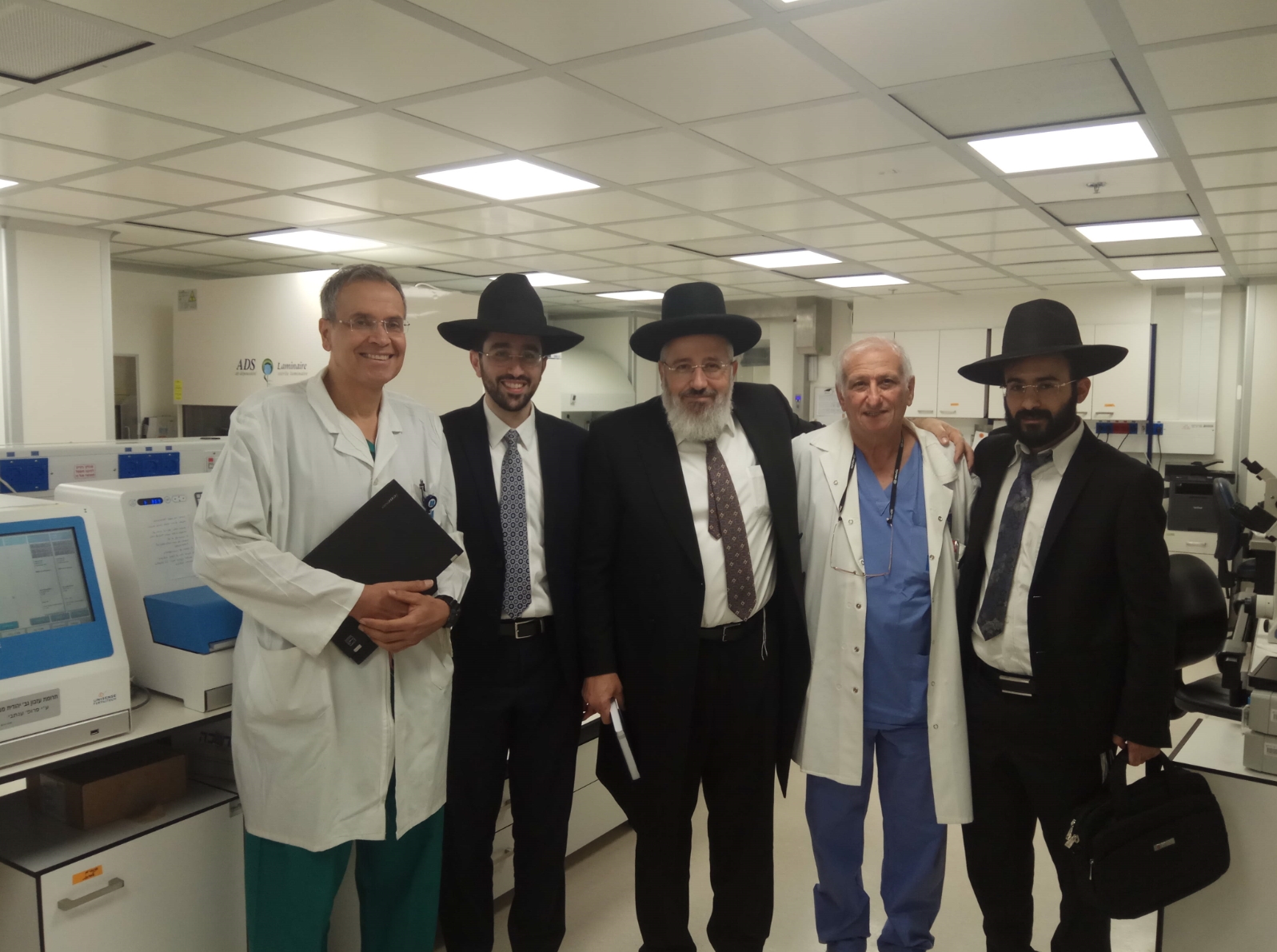 In the lab at Hadassah
In the lab at HadassahFor years now, 'Dorot' Institute has been accompanying couples yearning for a child, striving to provide them with answers on all possible levels. From guiding suitable medical treatment, through halachic supervision and emotional support, to dealing with bureaucratic complications and financial assistance. The institute answers about 800 inquiries a month, with specialized rabbis available in various locations across the country. They sensitively delve into each case's details, and after thorough investigation, strive to provide a comprehensive response as much as possible.
"May My Mother Have More Children"
Rabbi Itai Cohen himself was an only child for 11 years until his siblings were born. "I remember the long summer Shabbats where I would sit alone, looking for activities. All my friends had seven, eight, nine siblings, and I was alone, and on Shabbat, this loneliness was felt even more. By age nine, I would pray to Hashem with tears that my mother should have more children, and indeed after 11 years of waiting, and following treatments my parents underwent, I had two sisters and a brother. As a result of those treatments, my father, Rabbi Tzion Cohen, the rabbi of Or Yehuda, decided to establish 'Dorot Institute,' and having grown up in this struggle, I joined the effort as well."
But this reason alone did not lead the rabbi to manage the institute. "In the past, I used to provide answers in various religious courts, and I saw how many questions about medicine and fertility came to rabbis. However, there was some vacuum because the rulings in this field for the Sephardi public were less developed. Therefore, the institute was established, providing answers according to Rabbi Ovadia Yosef's method, and people from various sectors turn to us, and we strive to assist everyone."
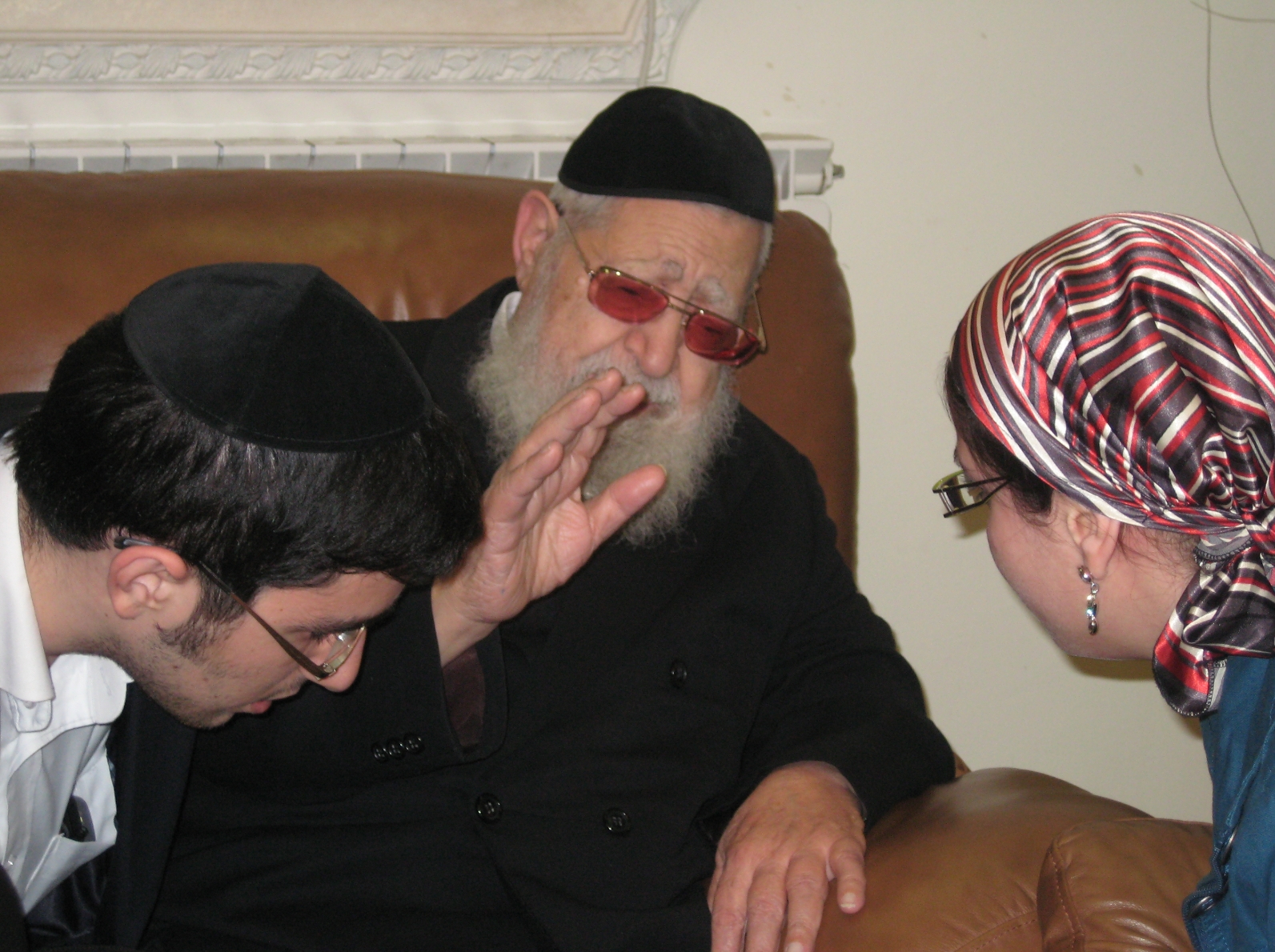 Rabbi Ovadia blesses us for enduring seed
Rabbi Ovadia blesses us for enduring seedHow did you turn from a place that gives halachic answers, to one that provides comprehensive support for fertility challenges?
"The halachic response is usually the small part of the story, while the larger part is all the support beyond. On the medical level, for example, a couple might start treatment and fail repeatedly without understanding why. When this couple comes to us, we listen to their story, sit with them on all the medical paperwork, and discover that they are being treated by a doctor specializing in a particular problem, but actually need an expert in another field. We have a broad view of various fields and doctors to offer the couple treatment suitable for their specific situation, and this advice can help advance the situation quickly.
In this context, I remember a traditional woman who called us in panic after deciding to observe *tahara* and the awaited pregnancy was delayed. She went to be examined by a gynecologist, who was unfortunately particularly disconnected, and told her: 'If you continue to observe *tahara*, you won't have children'. I must emphasize that most doctors are not like this, but unfortunately, this is what happened, and that woman left broken because suddenly her Judaism clashed with the thing she most wanted in the world. I received the call from her after a friend heard about her difficulty and advised her to call the institute, and I told her: 'We are not missionaries, and the decision on what to do is entirely in your hands, but regarding what that doctor said, it is neither professional nor true'. I referred her to another doctor, who, even though he is not observant, still knows how to respect every person in their path, and a few weeks later, she informed us of a pregnancy."
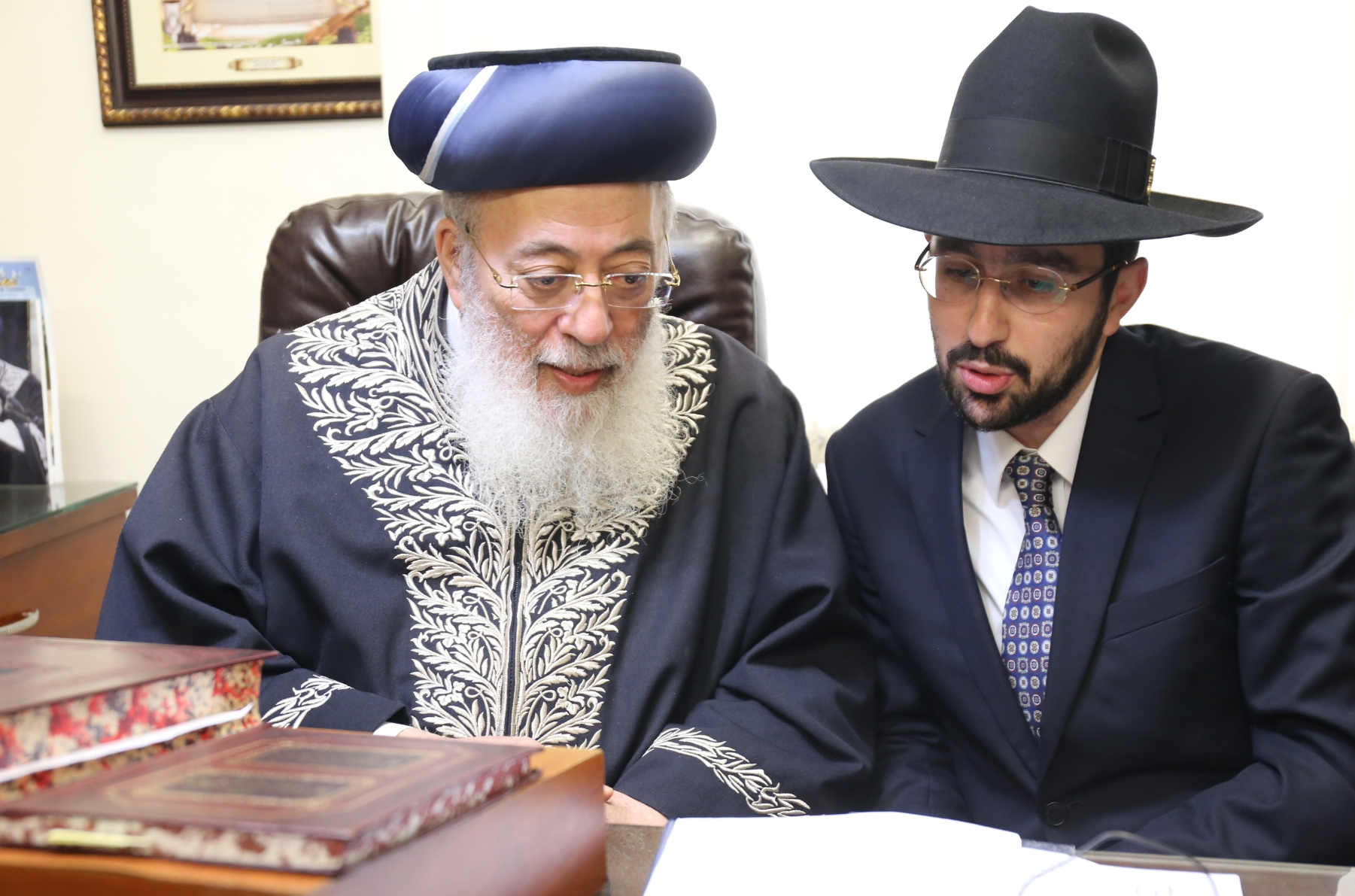 Rabbi Amar
Rabbi Amar
Quater as the Count of Hashem
Apart from the halachic and medical response, there's often a significant emotional difficulty surrounding the treatment as well. "A woman came to us, for example, feeling she couldn't continue with the treatments, so we connected her with one of our volunteers, a woman who personally experienced the severe difficulties of fertility," the rabbi recounts. "Already after the first conversation with that volunteer, I received a message from the patient in these words: 'She strengthened me greatly, and I am ready with a calm heart to start the treatments'. One cannot even understand what a couple, and particularly a woman, waiting for a child goes through. Fertility treatments are accompanied by so much tension, and sometimes from sheer difficulty, the couple barely drags themselves to the next session. Just last week, we met a woman who was very apprehensive about it, and after we sat to calm her and even moved up the treatment appointment, she felt supported and became relaxed."
Are there also couples who decided to reconcile with their fate and not undergo treatments?
"Unfortunately, yes, and here I want to emphasize that Rabbi Ovadia Yosef, of blessed memory, was very strong and clear on this issue, instructing people to seek treatment and make efforts. Even his son, the Rishon Lezion Rabbi Yitzchak Yosef, said at the annual rabbinical conference of the Dorot Institute that such couples should be sent to him, as he has already convinced several of them to go and treat. Those people sometimes argue that if Hashem wanted, he would already give them children, and to this, we reply that we cannot understand the calculations of heaven, and we follow the guidance of the great rabbis of Israel, who instructed to make an effort. It's like a person whose leg is broken and hopes it will heal on its own, but in reality, he must make an effort and go to a doctor. "And He shall surely heal" – from here it is derived that permission is given to the doctor to heal, and we, of course, ensure to refer to doctors who follow Halacha, maintaining halachic supervision throughout treatment."
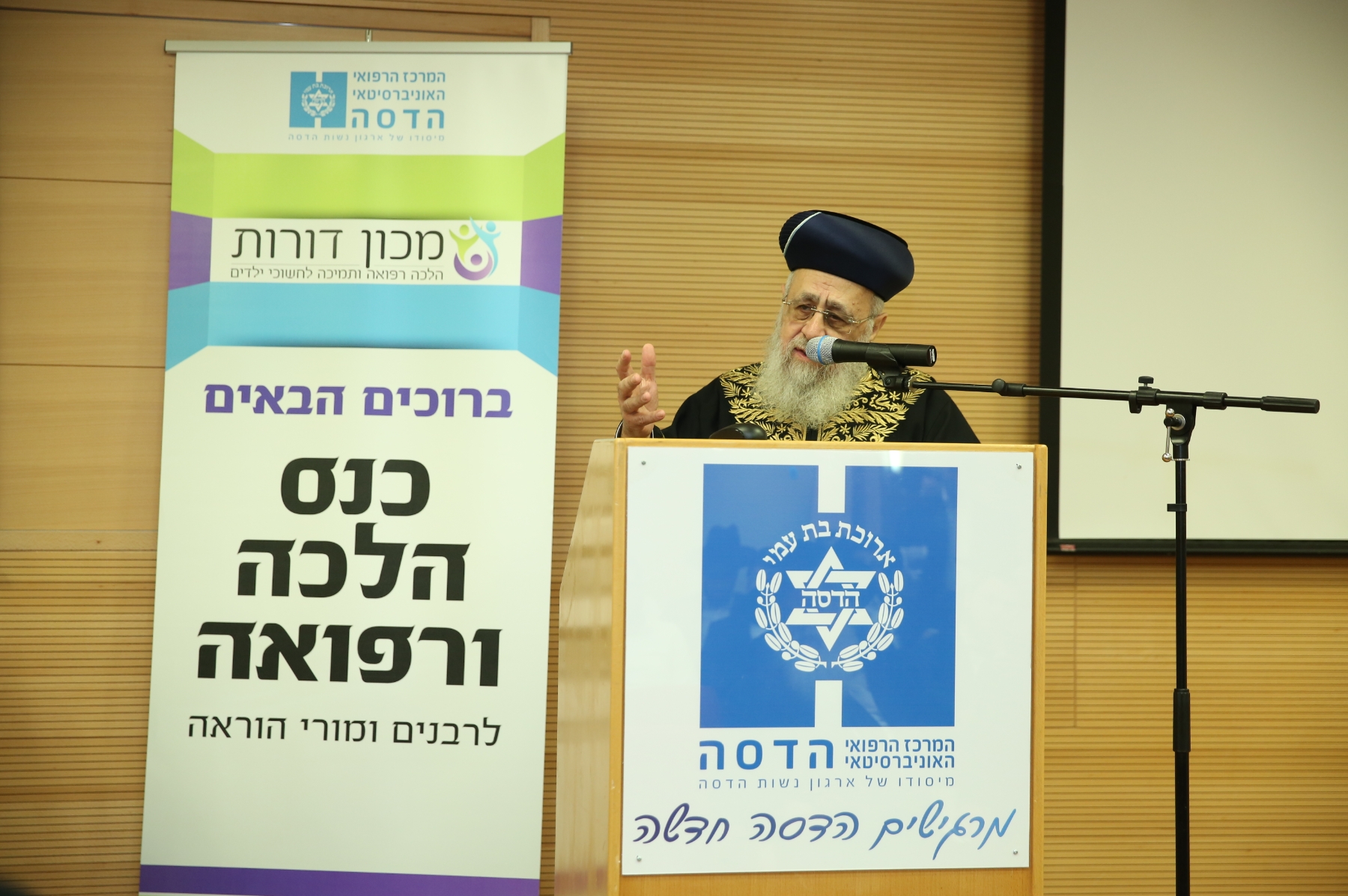 Rabbi Yitzchak Yosef at the Dorot Institute conference
Rabbi Yitzchak Yosef at the Dorot Institute conference"Another important point to raise in this context," continues the rabbi, "is about secondary infertility. Parents who already have children and suddenly stop giving birth do not always think there is a progression, but the truth is that even here efforts can be made to find solutions, and what's important is to reach out and consult."
Beyond personal struggle, there's also the challenge faced by fertility treatment patients with society. "Sometimes a couple comes to a *brit* and a friend honors them with the role of quater, some relate to it humorously, saying 'this is the 26th time I act as quater, just like the count of Hashem's name', but for most people, it's not a pleasant experience at all, let alone all the stares around, the multitude of advice and sometimes even the questions the couple receives from those 'wishing them well', a reality that is unsettling and painful every time anew."
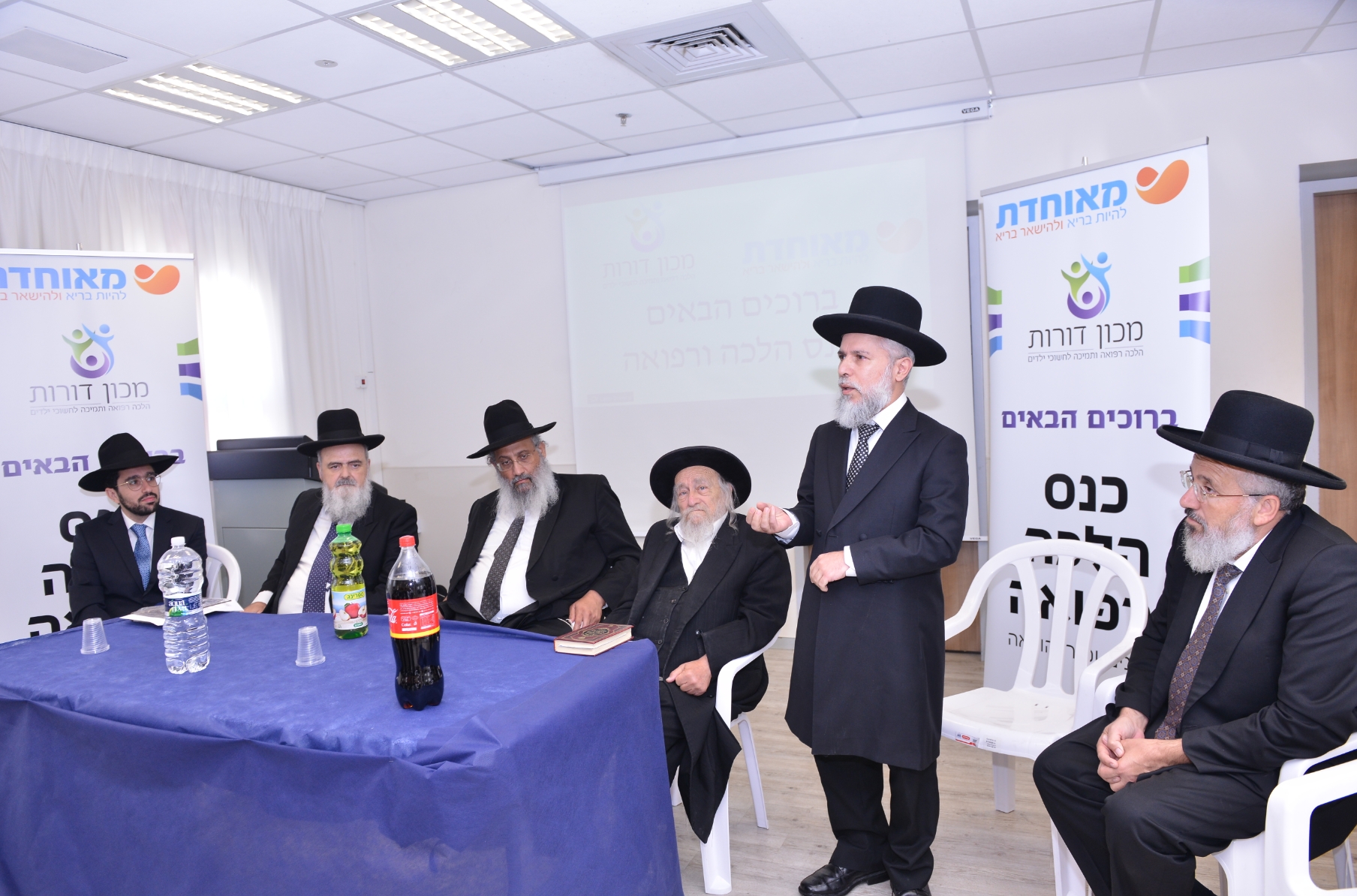 Rabbi Zamir Cohen at the Dorot Institute conference - Meuhedet
Rabbi Zamir Cohen at the Dorot Institute conference - MeuhedetThere are cases even after the couple starts a pregnancy that they still need the support of the institute. "A woman who starts a pregnancy after so many treatments and a long waiting period is sometimes in real anxiety for the fetus's wellbeing. She might think it's better to stop working and spend all day in bed, and we are there to calm her and guide her to continue a healthy daily routine. Additionally, when the pregnancy begins at relatively late ages, there are instances where the couple no longer has a mother to ask what to do, and we become their parents, explaining which tests exist and what is going to happen throughout the pregnancy."
The institute's work can even break regular operation hours. "Not long ago, someone called me at 11 PM after she intended to take an injection and discovered she had just run out of medicine," the rabbi describes. "It turned out she lived near us, so we managed to provide the injection from the institute's medication charity fund, designed exactly for such cases. This was a 42-year-old woman, for whom every passing day is critical, and thank God, not long afterwards, we were delighted to hear she was pregnant. This isn't the first case where a response had to be given at challenging hours, and we also try to help as much as possible there."
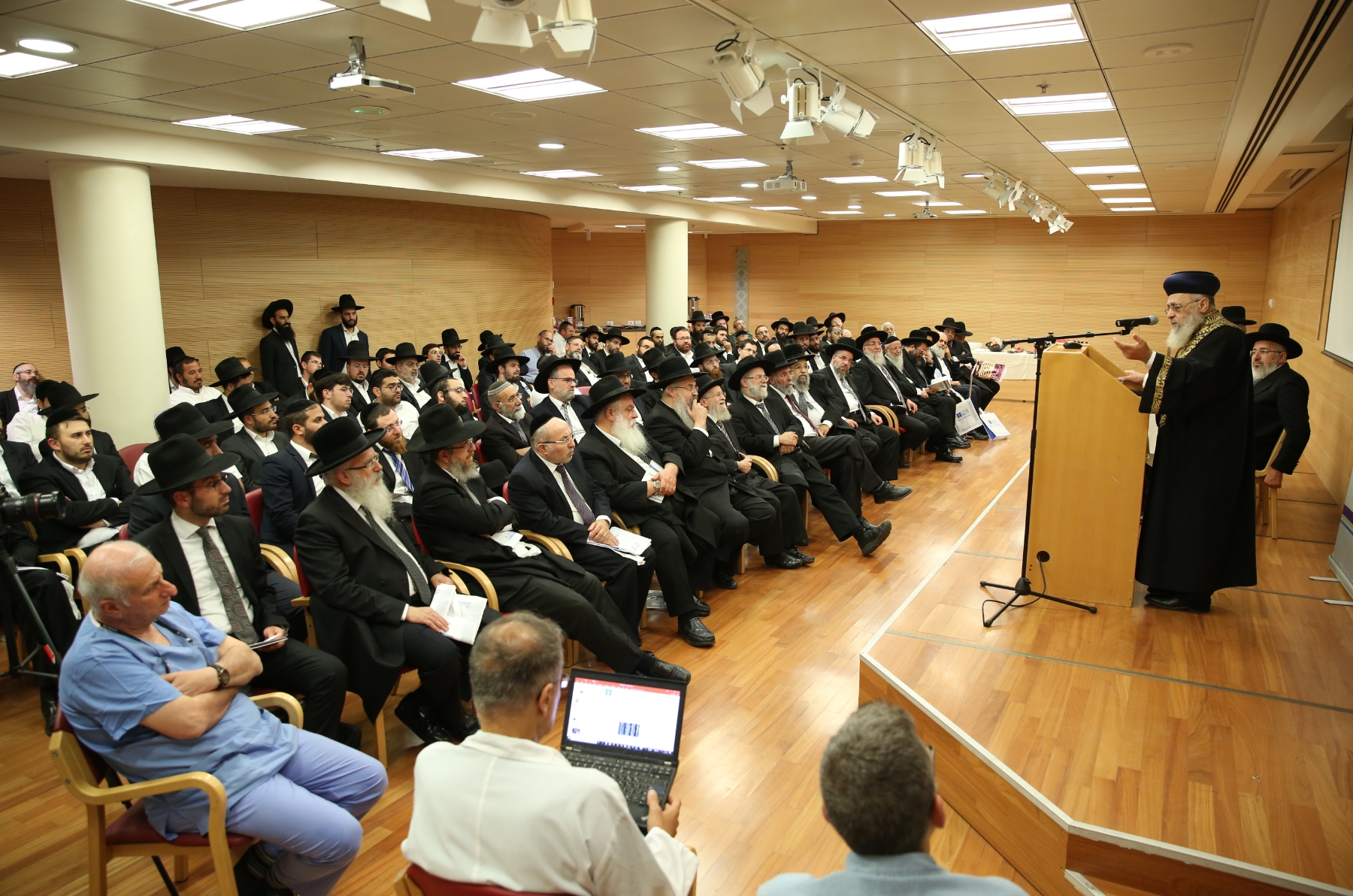 Dorot Institute conference at Hadassah
Dorot Institute conference at HadassahRegarding economic hardship, when does it connect with fertility treatments?
"A single basic treatment doesn't break anyone, but once a couple undergoes more and more treatments, it becomes a high cost, sometimes even impossible. Furthermore, there are more complex treatments that can cost tens of thousands of shekels, if not more. Often, we hear from a couple they are on a break simply because they lack the financial capacity to continue, and in such cases, we do not give up and find the funding for them. Additionally, there are times when the health insurance does not cover a certain medication due to bureaucratic issues. That's when we step in, deal with the health fund management, and usually find wonderful people who help us advance the matter. We had a woman who had undergone six miscarriages, so we referred her to a specialty professor. However, the fund did not approve the referral, and the woman could not afford the costly consultation. Thus, we paid for the first meeting, and to avoid paying for additional sessions, we contacted the health fund until we eventually got approval for those referents. This woman, by the way, is now in advanced pregnancy and expected to give birth in the coming months, and one cannot understand the sense of satisfaction and joy there."
Solutions for Any Situation, No Matter How Complex
Apart from assisting couples, the institute also opens workshops for those involved in fields related to fertility. "We have a course for marriage counselors and bridal instructors, who often encounter questions on these topics, so their understanding of the matter is important. The more familiarity there is with the issues, the faster the ability to direct couples to support, and sometimes one small consultation can focus a couple already overwhelmed by treatments onto the right path. Additionally, we have a course for rabbis, which is in high demand, as the rabbis face these questions and need the knowledge for making halachic decisions in the topic. Beyond that, I wrote a booklet published by the institute detailing all medical tests and treatments regarding *tahara*, used regularly in many religious courts. Generally, the more awareness there is of these issues, the quicker and more accurate the assistance to couples, and this is precisely the goal we are aiming for."
What about the parents of those undergoing fertility treatments, who don't always know how to cope with what their children are going through?
"These parents sometimes want so much to help, so eager to hear what their children are going through, but the couple doesn't share it with them because it's a very personal subject. Often, a mother calls us seeking help for her daughter or son, and we explain to her that help can only come if they choose to reach out themselves. We also tell the worried mother that although her daughter isn't sharing what's happening, she can rest assured that after several years of waiting, that daughter has already consulted several doctors and is doing everything required to achieve the desired pregnancy. Nevertheless, out of the need that arose and the difficulty surrounding the issue, we decided to open a special workshop providing these parents with tools to cope with the subject."
And what happens when you encounter particularly tough questions?
"It's indeed not always simple to answer matters that lie in the grey and complex areas, and some prefer to avoid them, but we follow the guidance of Rabbi Ovadia Yosef, of blessed memory, who saw importance in providing answers for every situation, no matter how intricate. In practice, Rabbi Aharon Butbul, the halachic authority of the institute, delves into every issue's depths, providing answers even to the most complex questions, and in particularly difficult cases, refers us to the Rishon Lezion Rabbi Yitzchak Yosef."
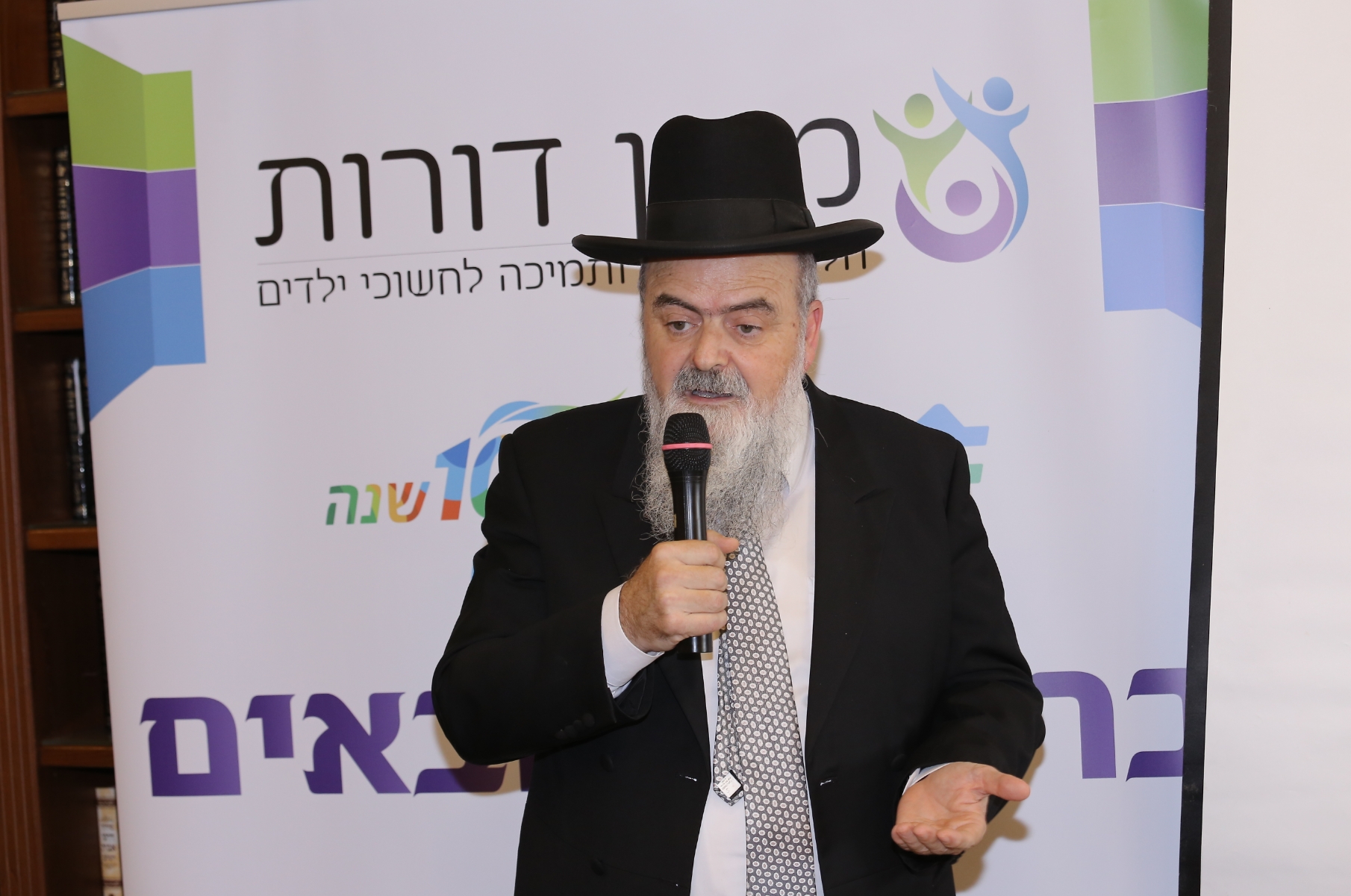 Rabbi Butbul at the Dorot Institute conference - Clalit in Ashkelon
Rabbi Butbul at the Dorot Institute conference - Clalit in AshkelonFinally, is there any special case that stands out in your memory from your years of work at the institute?
"The most special case I saw was of a couple who married, and after the wedding, a pregnancy started naturally, and they had a child. All problems come to us, and precisely the simple nature where everything proceeds smoothly is the greatest miracle. The Ramban writes that from open miracles, we learn about hidden miracles, so it's worth remembering what a great gift is received when a child is born naturally and simply. But even if it does not go smoothly, we are here to help, and we will strive to do our utmost for every person."

